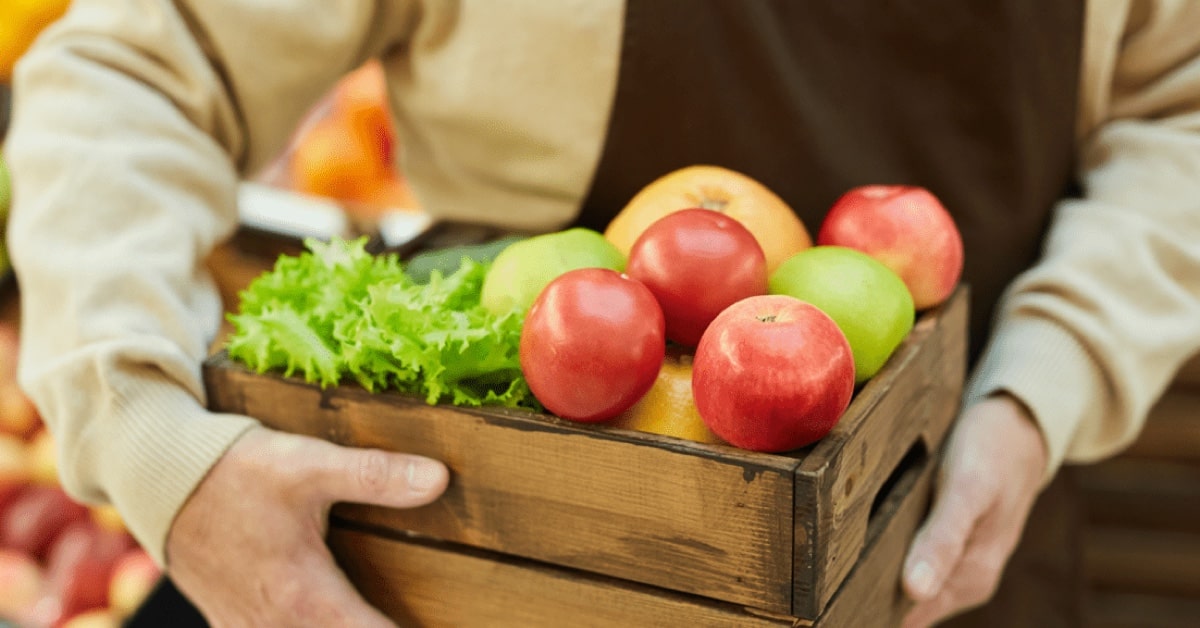
The pandemic’s effect on international trade has made buying local more important than ever.
The 2020 golf season has been and will be one of the most challenging we’ve ever seen. COVID-19 has changed the way we live, work, and operate our golf courses in the short term, but many of its effects will likely be lasting. Buying local had already become more than a trend for years prior to the pandemic, but the reduction of cross-border trade has shone the spotlight even brighter upon its importance. The golf industry is no exception.
Buying fresh and local produce for your food and beverage operations will be the main focus of this article, but there are plenty of other ways you can approach purchasing with your local economy in mind. Cleaning products, pro shop apparel, and kitchenware can all be sourced from local suppliers in your effort to be a boon rather than a burden on your community.
Times are tough for everyone — all the more reason to consider how you can operate in a more socially conscious manner. Buying local products is not only beneficial for the people around you but for your golf course as well.
Financial Advantages
Save Money
There’s a misconception out there that buying local is more expensive. While that used to be the case, the tide is shifting in the other direction, and now thanks to a more populated and therefore more competitive marketplace of independent sellers, consumers are reaping the benefits of lower prices for locally made goods. As a business operator, your neighbours tend to be friendlier in price negotiations for bulk orders. Plus, they can cut out the middleman on the supply chain which brings savings to them and allows them to charge less. Build a strong relationship with the farmers market next door and you’ll wind up saving money in the long run.
Support Local Economy
Golf course operators — especially those with a private membership — know the value of keeping a steady flow of money coming from within. Think of your region like a private golf club, where its members carry a personal responsibility to help keep the club’s finances healthy. Whether it’s buying golf balls in the pro shop or getting lessons from the club’s own instructors, the more members spend within the club rather than on the outside, the better. The same goes for your community and its economy. As a citizen and a business operator, take it upon yourself to direct as much of your spending as possible toward your community.
Superior Quality
Fresh Products
Local food is fresh food. Think about it: Produce grown and cultivated in-state or in-province avoids the long journey from one place to another, perhaps frozen along the way, losing its freshness by the mile. Instead of sitting on a supermarket shelf for days at a time, local products sold at farmers’ markets are usually bought same-day. There are also health benefits to eating locally grown food, which is typically free of pesticides and preservatives and higher in nutrients.
Diversified Menu
When you shop local, you’ll quickly learn the importance of a flexible menu. Many products are seasonal, meaning certain dishes will have to come and go every few weeks. Think of this as a positive! Sure, some of your staple menu items should stay on all season long, but a smaller and mostly rotating lineup of offerings will excite your guests — especially when they taste how the quality and freshness of your meals has gone up due to your local buying habits.
Perceived Value
Studies show that the biggest reason people opt for local products is that they believe them to be of a higher quality. As you make the transition toward buying local, it can be reassuring to know that many of your customers will see the benefit of your strategy; they’ll also understand a potential price raise. Given that local products come with a strong perceived value, you should inject that angle into your marketing efforts. Whether with callouts on the menu, signage in front of your restaurant, or publicity on social media, spread the word about your new community-driven game plan — it will resonate well.
Environmental Benefits
Reduce Transportation
Along with economic and community benefits, buying local also creates less strain on the environment. Food transportation contributes plenty of unnecessary greenhouse gas emissions, fuel consumption, and pollution in order to take imported products the thousands of miles of ground or air travel often required. This distance is referred to in “food miles” and you can significantly reduce the number you’re responsible for by purchasing local and slashing the transport distance needed to get that product to its seller.
Fewer Pesticides
As mentioned, commercially produced food that travels long distances is often packed with pesticides, which is bad both for the environment and the health of consumers. When you hear about organic products, these are products that come from local farms and are grown without the use of pesticides and other toxins. The organic method prevents lots of water and air pollution they’d otherwise be creating. When you commit to buying local, you help contribute.
Protects Local Land
When buying and eating locally, wildlife may be one of the last things on your mind. But consider this: When farmers don’t get enough support and their business struggles, they have to sell their farm. Typically, those farms, once sold, are redeveloped for commercial or industrial use, eliminating the wildlife living in that area. But when farmers are successful and can keep their land, those habitats remain intact. Every time you buy something locally, you’re helping to protect important local land that makes your golf course so beautiful.
Conclusion
With proven economic, health, environmental, and even wildlife-related benefits, it’s clear that there are enough significant reasons to start buying local, pandemic or not. Yes, you’ll be saving money and improving your offering, but you’ll also be helping your neighbours and injecting some life into your community. While we think it’s a smart financial decision, when it comes to buying local, your bottom line is not the bottom line.

News you care about. Tips you can use.
Everything your business needs to grow, delivered straight to your inbox.



